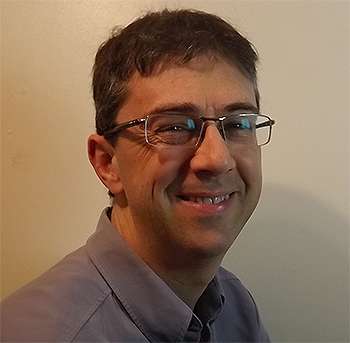The Anxiety Clinic
Tunbridge Wells
Leading research-proven therapy for anxiety
The Tunbridge Wells Anxiety Clinic is conveniently near the town centre and uses the ultra-modern Cognitive Hypnotherapy therapy model as its primary intervention to reduce and eliminate anxiety and related conditions such as depression and stress.
Cognitive Hypnotherapy is currently the best evidence-based therapy framework available for treating anxiety, a flexible, patient-centric style of therapy that helps adults, children and teenagers tap
into the amazing power of their subconsious minds to help improve and eliminate anxiety issues, worries, fears and phobias, and live a happier, calmer and more relaxed life.
Cognitive Hypnotherapy's first peer-reviewed study published in 2015 using the standard GAD-7 measure demonstrated an astounding 71% success rate, making it the most effective evidence-based psychological therapy for anxiety currently available, and considerably more effective than the IAPT therapies typically offered on the NHS such as individual CBT, Counselling and Psychotherapy which average 42% success.
It's highly tailored and individualised approach specific to a patient's own model of the world seamlessly incorporates tools and techniques derived from a wide range of successful and proven therapies, including traditional hypnotherapy, Neuro Linguistic Programming (NLP,) Cognitive Behaviour Therapy (CBT) and counselling, Solution-Focused, Positive and Evolutionary Psychology, traditional Psychotherapy and others.
Eliminating anxiety and related conditions can sometimes require a multi-discipline approach, so at The Anxiety Clinic we are able to contact and utilise the expertise of a range of other therapy modalities where necessary.
Clinic Location
The clinic is conveniently located at the peaceful premises of The WellSpring Clinic which is above the Lonsdale Medical Practice GP surgery near Tunbridge Wells train station.
Clinic appointments are booked in advance and (subject to availability) are usually available at most times during the week including some evenings and Saturdays.
Sessions typically run for around an hour and cost £65 for children still at primary school, and £85 for older children, teens and adults. The number of sessions required varies depending on what's driving the anxiety, the severity, and whether it is generalised or more specific (e.g. a phobia) but we would usually be expecting to see improvements within the first few sessions.
Lead Therapist
Paul Marro
HPD, DipCHyp, NLP Prac, MNCH(Acc), CNHC Reg

I've been a practicing Cognitive Hypnotherapist since training with the Quest Institute in 2007, and have worked in both private practice and mainstream mental health (Cygnet) during this time with many hundreds of clients aged from just 6 years old to over 80. I'm an accredited member of the National Council For Hypnotherapy (NCH), registered with the government-backed Complimentary & Natural Healthcare Council (CNHC) and am fully CRB / DBS checked on a regular basis to work with children and young people.
About Anxiety
Anxiety, and its more severe form panic attacks, are usually natural responses to situations (now or in our perception of the future) that we decide subconsciously are inherently unsafe in one way or another. They are sometimes linked to phobias.
Our subconcsious is always looking to protect us from harm, and it attempts to help by looking back into its past database of patterns that have been built up over the course of our lifetimes, to find an appropriate "match" to any given situation, and an appropriate response to it that best keeps us safe.
Anxiety and panic attacks are a result of the activation of the fight-or-flight response, heightening our senses and getting us get ready to fight or run away from this perceived threat, whether that threat it happening now or at some future time.
Whilst this is fine and perhaps even appropriate in the short term, longer term exposure (even at low levels) to the hormones involved such as cortisol can cause other physical and mental problems such as short term memory loss, poor immune system functioning and weight gain. Interestingly some types of anxiety and panic can be purely biochemically driven, perhaps in response to some sort of environmental stressor.
Anxiety can also be generated by internal processes such as anxiety towards certain thoughts and feelings, perhaps in conjuction with OCD-type behaviours. Some people can even become anxious or phobic towards anxiety itself.
Cognitive Hypnotherapy can be useful in helping to treat the mental contributors to anxiety and panic. If the triggers are environmental, nutritional therapy can also be useful in this field as an alternative to commonly prescribed medications such as anti-depressants, SSRI's and benzodiazepines. Cognitive behavioural therapy may be offered on the NHS and can be useful either on its own or alongside Cognitive Hypnotherapy.
As always, having an effective therapeutic relationship between the therapist and the client, and the client's willingness to participate and change are very important.
Get In Touch
Office Phone (usually answerphone): 01732-808211
Mobile / Text: 07853-130023
Email: